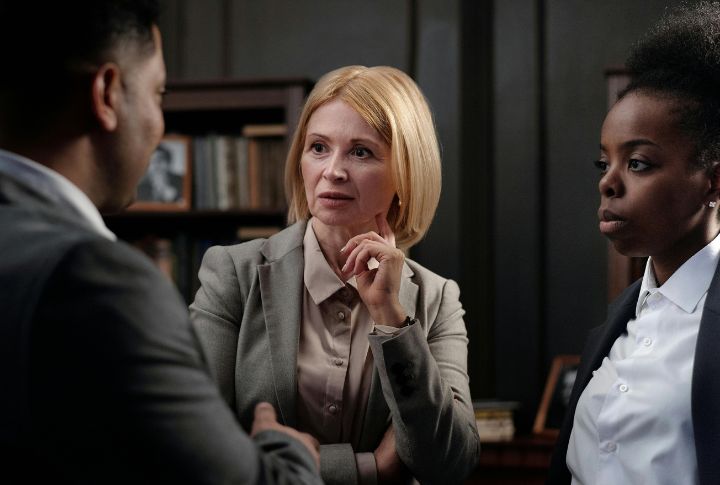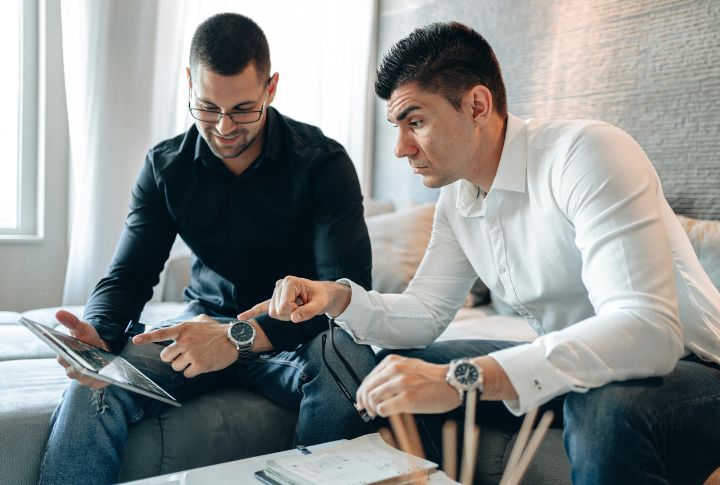
Sometimes the smartest thing said in a room is also the simplest. You’ve likely heard short, clear phrases that instantly shift how you see a problem. Those moments reflect a kind of practical intelligence we call common sense. Psychology has noticed patterns in the way people like this speak. Let’s explore ten phrases that highlight what common sense actually sounds like when people use it every day.
“Let Me Think About It.”

Quick reactions can get you into trouble, but pausing gives you space to breathe. When you take a moment, you let uncertainty settle and give your brain time to process. The pause leads to smarter decisions and fewer regrets in the long run.
“Is That Always True, Or Just Sometimes?”

Our minds naturally gravitate toward absolute certainties, but science shows the pitfalls of such black-and-white thinking patterns. By learning to challenge sweeping generalizations and recognize legitimate exceptions, we develop a more nuanced understanding and avoid cognitive errors. That simple yet powerful question serves as a gateway to more accurate, flexible reasoning.
“Is It Really Worth My Energy?”

Think of your energy like a phone battery. Every swipe drains it, so you’ve got to pick what’s worth the charge. Asking, “Is it really worth my energy?” helps you manage that account wisely. By spending carefully, you avoid unnecessary strain and keep enough reserves for what truly matters.
“What’s The Evidence For That?”

Bold claims can be fun to hear, but not all of them stand up. Before rushing to agree or disagree, pausing to ask, “What’s the evidence for that?” slows the pace. The question pushes attention toward facts instead of opinions.
“Can You Walk Me Through Your Reasoning?”

You’ve probably had moments where someone’s conclusion made little sense until they explained how they got there. That’s the value of asking about reasoning. It uncovers hidden steps, keeps conversations on track, and makes your own thinking more disciplined in return.
“Tell Me More About It.”

Curiosity creates space for richer dialogue. When you invite someone to share more, you show engagement instead of distraction. The result is a conversation built on trust and mutual respect, where better communication flows naturally and new viewpoints expand your own.
“I Don’t Know, But I’ll Find Out.”

No one has all the answers, and pretending only makes things worse. Owning up with “I don’t know” is honest, but adding “I’ll find out” makes it powerful. Suddenly, uncertainty isn’t a wall anymore; it’s a door you’re ready to open.
“Can We Test This Or Try It On A Small Scale?”

Rather than diving in headfirst, running a small-scale test gives you a safety net. You identify what works, spot what fails, and adjust before moving forward. This trial-and-error process turns big risks into manageable steps, which makes larger rollouts steadier and more reliable.
“What Would Happen If We Did Nothing?”

You’ve likely been told to “do something” in moments of stress. Yet asking, “What happens if I don’t?” can be revealing. It frames inaction as a valid path that gives you space to weigh risks and avoid rushing into choices that create more complications.
“How Would I Feel In Their Shoes?”

Arguments will shrink when you try this. Stepping into someone else’s perspective slows judgment and lets empathy step forward. By imagining their feelings, you create room for understanding. The simple shift can turn tense conversations into opportunities for connection and stronger relationships.

